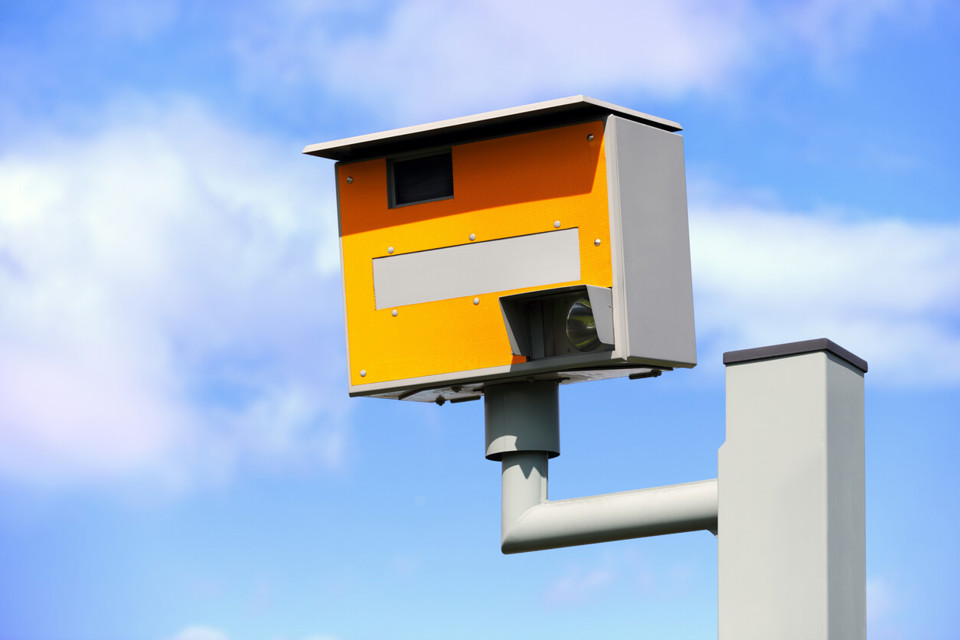More than 19 million (70%) of UK motorists feel that speed cameras only exist to make money, not to prevent accidents, according to a new study by comparison site Gocompare.com.
The findings follow the West Midlands Police Force’s decision to scrap 304 fixed speeding cameras in the area, citing the cost of upgrading them as the cause for their removal.
Gocompare.com’s research also found that:
- Almost half (45%) of UK motorist don’t believe speed cameras reduce accidents
- Nearly one in three (29%) motorists slow down for speed cameras and then speed up again
- 35% of motorists admit to breaking the speed limit when they ‘consider it safe to do so’
- More than 12 million (45%) believe that speed cameras should be abolished
Speed cameras were first introduced in the UK in 1992 and have been estimated to raise around £100m in fines each year, which may explain why more than three quarters (77%) of motorists feel that speed cameras are positioned to catch people out rather than prevent accidents.
In fact, almost half (45%) don’t believe that speed cameras reduce accidents.
The research also suggests that the presence of speed cameras doesn’t necessarily change everyone’s general driving habits, as almost one in three (29%) motorists admitted that they only slow down as they approach the camera, and speed up after they have passed it.
More than a quarter (27%) of motorists indicated that they were most likely to break the speed limit on motorways, while more than one in 10 drivers (12%) were most likely to speed on roads with a 30 mile per hour limit.
Drivers in the East and South East of England are the least supportive of speed cameras, with nearly half (49%) of people from the region believing that speed cameras should be abolished.
Scott Kelly, head of motor at Gocompare.com, said: “There is no doubt that speeding makes our roads more dangerous and the police are quite right to use fixed and mobile cameras in an attempt to reduce accidents.
“However, according to our research a lot of drivers believe that the positioning of speed cameras is now more to do with raising revenue than reducing accidents, and many admit to only slowing down for cameras and then speeding up again once they’ve passed them.
“The financial impact of being caught speeding can be severe. As well as the fine, an endorsement on your license can also lead to increased car insurance premiums.
"In one example we found that having three points on your licence for a speeding offence can raise insurance premiums by £286.
"In the worst case a driving ban may mean you’re unable to maintain your usual way of life, especially if you rely on your car to get to work or your occupation involves being able to drive.
"However, if you regularly speed you should probably consider yourself lucky if all you get as a result are penalty points and a fine.”















James C. Walker - 23/04/2013 19:52
Prior to 1992, the UK set most posted speed limits at the 85th percentile speed of free flowing traffic under good conditions, the method that almost always produces the smoothest and safest traffic flow. Then came the speed cameras with the ability to collect perhaps 100 million pounds a year by posting limits too low for maximum safety and erecting speed cameras to profiteer from the improperly low and arbitrary limits. If the UK returned to 85th percentile speed limits, safety would improve country wide and virtually all the speed cameras would be removed as unnecessary. See the DfT Circular from 1980 - the science is here. http://www.abd.org.uk/speed_limits_85th.htm See the last article for the Michigan State Police procedure in Establishing Safe and Realistic Speed Limits http://www.motorists.org/speed-limits/articles Unfortunately, posting the safest speed limits is not profitable, so artificially low limits plus cameras are used far too often to profiteer. James C. Walker, Executive Director - National Motorists Association Foundation (USA), frequent visitor to Britain to see family in West Yorkshire